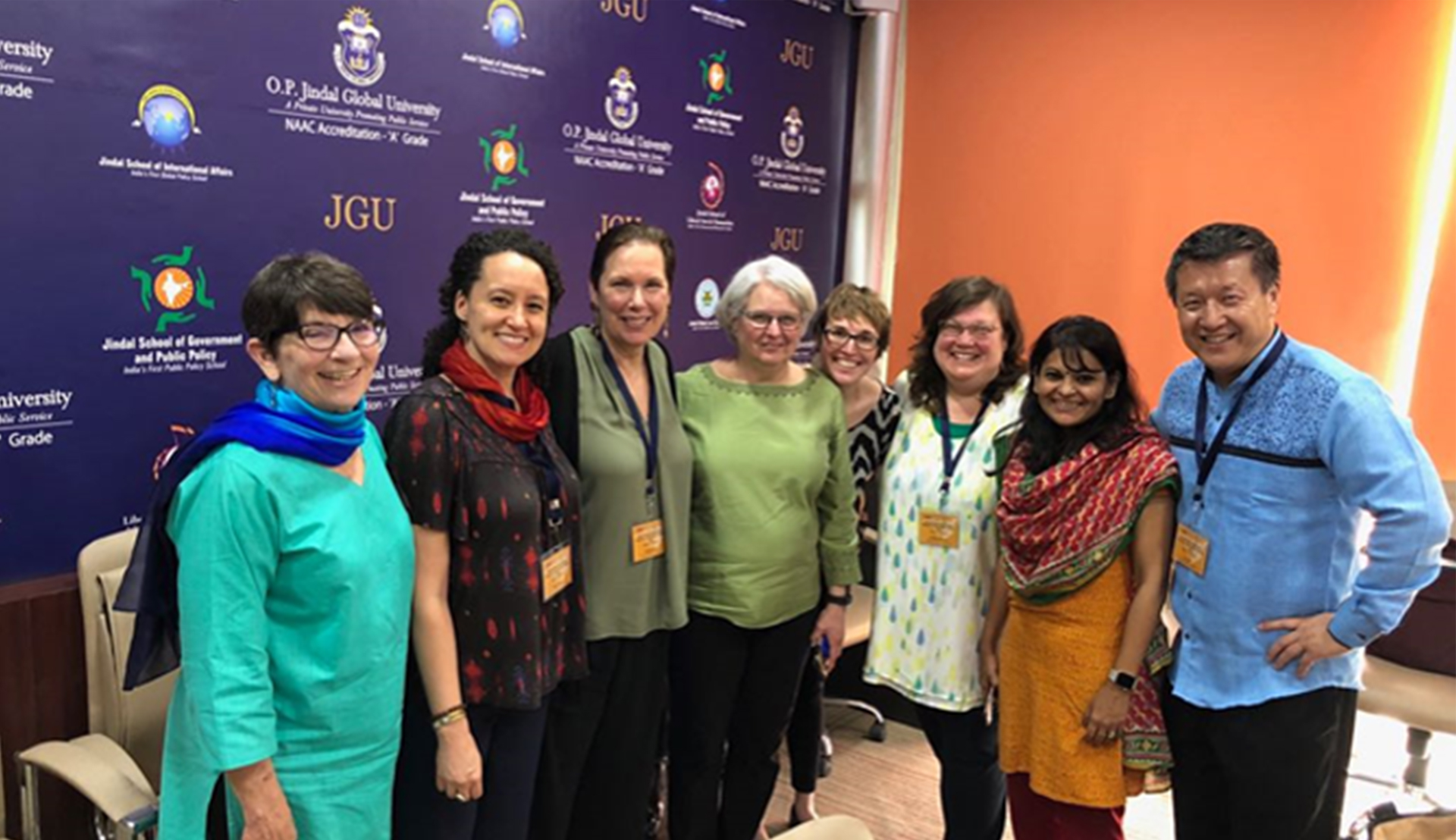Kim Pernice, the senior program coordinator for international partnerships at Rutgers Global, has facilitated hundreds of official agreements between Rutgers and institutions abroad. These agreements—which serve as the root of international collaborative research, faculty exchange, and study abroad programs—often stem from faculty connections, global conferences, and other individual networking sessions.
However, “developing partnerships takes time,” and understanding of culture, Pernice said, “not to mention an understanding of the rules and regulations at Rutgers and abroad that govern these agreements.”
Last year, when Fulbright announced its International Education Administrators seminar in India, Pernice decided to apply with encouragement from her director. The seminar, which brings administrators like Pernice for a two-week tour of universities in specific host countries, provides direct insights into the higher education structure and the cultures that make them tick.
“Before applying for the program, I felt that the higher education system in India was very complex and difficult to understand. I was interested in this program because I knew it would help answer many of my questions about partnerships with Indian institutions—that was my main motivation,” Pernice said.
In March 2018, Pernice traveled to India—a country in which she had never been—to visit 15 universities and 2 non-governmental organizations in and around New Delhi, Kochi, and Coimbatore. There, along with representatives from 13 other U.S. universities, she was greeted with a fresh perspective on higher education in India.
“Kochi and Coimbatore are not as saturated by foreign universities as Delhi. There are some very impressive and distinct institutions in these locations that could be ideal places for our students to study and our faculty to teach or conduct research alongside Indian colleagues.”
India has the third largest education system in the world (after the United States and China) and is served by four different types of universities: central, state, deemed to be, and private. Each one operates under a different set of rules and regulations, but all are overseen to some extent by the University Grants Commission.
Central and state universities are generally funded by government agencies and have a lesser degree of autonomy, while “deemed to be” universities are funded by various other sources and enjoy many of the benefits of public universities while exercising full control over curricula, foreign faculty hiring, and student recruitment; private universities, like those in the United States, are entirely self-funded.
Private education in India has exploded in recent years, and 60 percent of students currently attend private institutions. While the creation of so many new institutions has provided new opportunities for international collaboration, one of the challenges has been ensuring the quality of these new institutions.
Since returning from India in March, Rutgers Global has already hosted a visit of faculty from one of the universities that was included in the IEA program. Pernice is hopeful that this new relationship might evolve into a true partnership between Rutgers and the institution.
In addition to university visits, the two-week program also included excursions to well-known cultural sites, like Agra Fort, Humayun’s Tomb, and the Taj Mahal. Pernice was extremely pleased with the overall quality of the IEA seminar in India.
“People tend to think that Fulbright programs are only for faculty—but the IEA seminars are actually catered to those of us who work as administrators in international education,” Pernice said. “I cannot think of any other program or approach that would have allowed me to learn as much as I did about higher education in India, in the same amount of time.”
Pernice also came away from the experience with new interests.
“I tried not to have too many preconceived notions about what it would be like before I arrived in India, but I didn’t anticipate that I would become enamored with so much of the country. I still feel very grateful that I had the chance to participate in this seminar; it was, without a doubt, one of the best experiences in my professional life thus far.”

